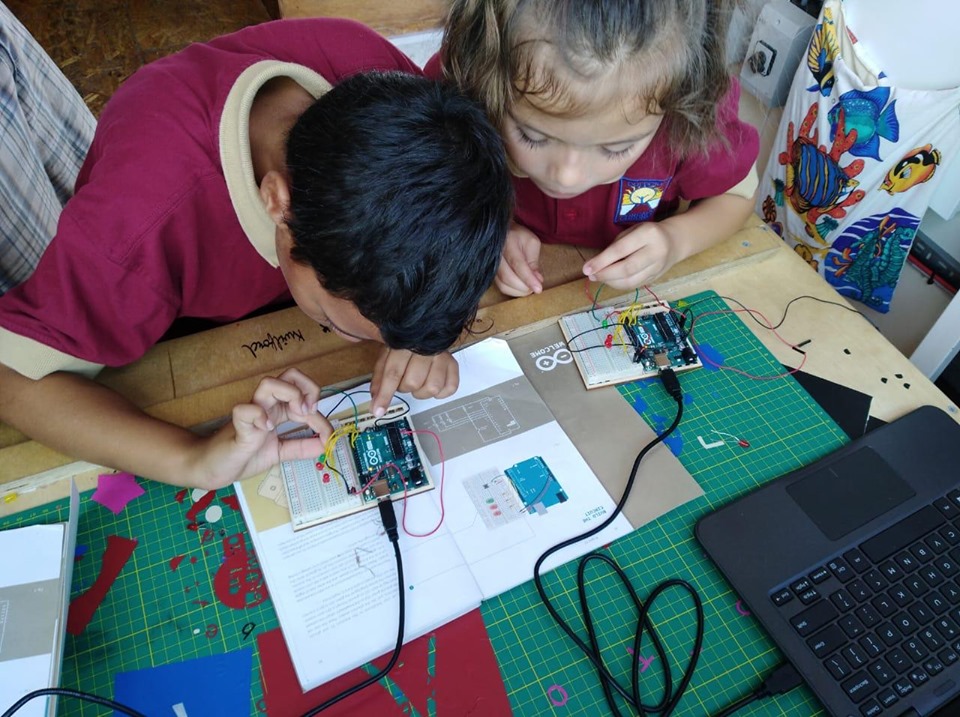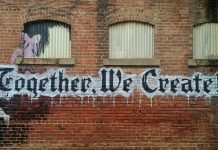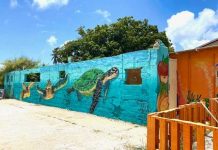Considering the times we are in, science, technology and innovation (STI) have been the focal point of strength of many developed nations in the world. Take for example the US, China, Korea, Russia, Japan and Europe. Now, for us smaller and less developed countries, or even islands, how will we catalyze on these developments for our future generations. STI are proven to be inseparable from developments in employment and production and it is especially essential to determine which types of innovation will best serve a community in attaining the threefold objective of economic growth, social inclusion and environmental sustainability engrained in the 2030 Agenda for Sustainable Development through the Sustainable Development Goals (SDGs).
Aruba has committed herself to these goals and the Aruban government has expressed that their goal is to keep the human being central, leaving no one behind. Also, innovation has been considered the main tool to accomplish this objective and have since 2017 made strategic steps into the future of innovation on the island. However, will this be enough?
I recently took notice of the first Makers Expo at the Biblioteca National Aruba (BNA). An expo dedicated on technology and innovation, showcasing all the entities and professionals on Aruba that are currently dedicating their efforts towards innovation. The entire community of Aruba was invited to come and experience what technology could be or mean for our development. It was so nice to see how many children were there with their parents. Events like this could really inspire young men and women to consider Science, Technology, Engineering & Math (STEM) for better socio-economic development in Aruba.
Also, we know that the Aruban government has recently presented the 6 prospective economies for economic diversification, namely the Tourism Industry, Knowledge Economy, Agriculture Industry, Logistics Economy, Circular Economy, and the Creative Industries. Unlike the Tourism Industry, these economies will have to be developed from the bottom going up in order for them to be successful on the island. Also, the University of Aruba will be expanding shortly with a new “sustainable island solutions through science, technology, engineering and math” SISSTEM Faculty, where for the first time, Aruba will embark on a STI journey. However, what business environment do we have in place for this to work in Aruba? Are there companies in Aruba which focus on STEM skills and education? This new faculty, which again is a great step in the right direction, will need the environmental support of the private sector. If these students graduate in 3 to 4 years, where in Aruba can they work? If the private sector is not supporting this new shift in academia we will once again educate students to eventually leave due to a lack of job opportunities.
Aruba wants to build a knowledge economy through the presence of the SISSTEM Faculty, which in simple terms means that knowledge is considered economically valuable, thus it has a price tag to it. The aim is to then export the knowledge (on anything really) and gain economic revenue. According to the Central Bureau of Statistics in the 1st QRT of 2019, Aruba’s export rate is approximately 36.3 million (not so much). But globally if we learn from the previously mentioned developed countries, part of the knowledge export always includes high-tech knowledge and/or products. Each country’s positioning in the global economy and value chain depends on its ability to absorb knowledge and move closer to the technology and innovation frontier. Now, where do Latin America and the Caribbean stand in this respect? Unfortunately, according to the United Nations Economic Commission for Latin America and the Caribbean (ECLAC) in their latest report on STI developments: “Science, Technology and Innovation in the Digital Economy: The State of the art in Latin America and the Caribbean” (2016) “despite the progress made, indicators of innovation efforts and access to technology are not promising”. ECLAC (2016) reaffirms this by explaining that “countries that base their competitiveness on exports of high-tech products require workers with advanced skills and high levels of investment in R&D, while maintaining close links between the production system and science and technology. High-tech sectors are less exposed to the entry of competitors, so they earn higher revenues. As a result, nearly all developed countries are exporters of technologically advanced products” (p.17). Now, it might be too far-fetched to think that in a couple years Aruba will be the next Silicon Valley, but the main operation for islands such as Aruba is to work on their absorptive capacity.
According to UNESCO (2019) “investment in science, technology and innovation is essential for economic development and social progress. Research and development (R&D) can foster sustainable development by building greener, more inclusive societies. To be effective, however, infrastructure development, technology transfer and both public and private R&D need to be nurtured and regulated via effective policies”. So, let’s recap for a moment, Aruba will soon have a SISSTEM faculty, thus we are working on the human capital aspect, making sure we have skilled workers in STEM in the future. Also, we have work to do on making Aruba more attractive to foreign investors, even though we do have favorable characteristics as an island. Aruba is limited in the STEM private sector, thus there are limited companies that focus on STEM developments. Aruba has a national economic policy, a national innovation framework, but has nothing on science and technology, which are important components before addressing innovation as a whole.
 But, now I ask myself, how will we innovate, not only for the “fun of it”, but innovate to the point we can see an economic impact, if we are not investing in R&D both in the public and private sectors? There are no traces of public data on how much Aruba is spending on R&D, because probably it is very limited or even unknown. There are numerous ways how the government could stimulate R&D, for example by creating a tax regulation for entrepreneurs and businesses who could benefit from R&D and would then get an incentive for doing so. In the knowledge economy or even in the creative industry, innovating in processes, such as e-government, will for sure make the easy of doing business better or even fight corruption, but it will not automatically make Aruba successful in developing a knowledge economy.
But, now I ask myself, how will we innovate, not only for the “fun of it”, but innovate to the point we can see an economic impact, if we are not investing in R&D both in the public and private sectors? There are no traces of public data on how much Aruba is spending on R&D, because probably it is very limited or even unknown. There are numerous ways how the government could stimulate R&D, for example by creating a tax regulation for entrepreneurs and businesses who could benefit from R&D and would then get an incentive for doing so. In the knowledge economy or even in the creative industry, innovating in processes, such as e-government, will for sure make the easy of doing business better or even fight corruption, but it will not automatically make Aruba successful in developing a knowledge economy.
Now maybe you are asking yourself what R&D looks like. Well, ECLAC (2016) explains that “research and development includes all creative work undertaken systematically to increase the stock of knowledge, including knowledge of mankind, culture and society, and its use to devise new applications. This definition involves three activities: basic research, applied research and experimental development, which are defined as follows:
(i) Basic research is systematic original, theoretical or experimental work aimed at increasing the knowledge of a phenomenon or fact without considering any practical or direct application.
(ii) Applied research also consists of original systematic work but, unlike the previous category, seeks to resolve a specific need or practical problem.
(iii)Experimental development is aimed at new or improved production of materials, products, devices, processes or systems” (p. 25).
 Basic research might be the most frequent type of research performed frequently on the island, thankfully due to the higher academic institutions on the island. But, I wonder how many of these research reports are used in practice? How many students who graduate, can count on their research findings and recommendations to be utilized? Does the private sector consider the fact that they can utilize research results for their benefit? Do they know how to locate research papers on the island? Now with the SISSTEM faculty, we can venture more into applied research and experimental development, thus diversifying our R&D scope. But, unless as a country we understand the importance of R&D both in the public and private sector, we will have many challenges innovating. Overall, a complete and rigorous STI policy and cohesive national infrastructure between public, private, academic, non-government entities is something Aruba should consider going forward, because we can’t afford staying behind in this globalized world any longer. q
Basic research might be the most frequent type of research performed frequently on the island, thankfully due to the higher academic institutions on the island. But, I wonder how many of these research reports are used in practice? How many students who graduate, can count on their research findings and recommendations to be utilized? Does the private sector consider the fact that they can utilize research results for their benefit? Do they know how to locate research papers on the island? Now with the SISSTEM faculty, we can venture more into applied research and experimental development, thus diversifying our R&D scope. But, unless as a country we understand the importance of R&D both in the public and private sector, we will have many challenges innovating. Overall, a complete and rigorous STI policy and cohesive national infrastructure between public, private, academic, non-government entities is something Aruba should consider going forward, because we can’t afford staying behind in this globalized world any longer. q











